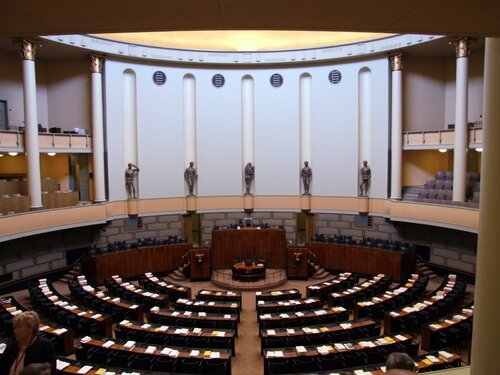-
Geopolitics of Finland
Internal political of Finland :
Finland is a parliamentary democracy.
The President of the Republic is elected by direct universal suffrage.
The government (in Finnish is Valtioneuvosto or statsrådet in Swedish) is headed by the Prime Minister who is chosen by parliament. The government is composed of the Prime Minister, different central government ministers and an ex officio member, the Chancellor of Justice.
The Parliament (Eduskunta in Finnish or Riksdag in Swedish) is composed of 200 deputies, and constitutionally has the supreme legislative authority in Finland. He can change the constitution, dismiss the government and counter the presidential vetoes. Its acts can not be legally challenged. Laws may be proposed by the government or one of the Eduskunta members, who are elected by proportional suffrage for a period of 4 years.
The parliament, since universal suffrage was introduced in 1906 (including women), was dominated by agrarian parties (centrist party Maalaisliitto currently Suomen Keskusta), Social Democrats (SDP) and left alliance (Vasemmistoliitto). It may be noted that the political spectrum was more marked by the influence of anti-socialist currents (in the Soviet sense) than in other similar countries have had less contact with the USSR.
Parliament of Finland.
External policy of Finland :
Since its accession in 1995, Finland is intended as student EU model. It adopted all European policies, including the single currency. She applied to the letter the criteria of the Stability Pact and growth after the introduction of the euro, and ensured respect strictly the criteria set by the Pact on fiscal deficit and debt.
Finland is a neutral country since 1955, and is not part of OTAN, but develops an interoperability program forces with OTAN.
Finnish people in general have long been convinced that the country must ensure its own survival, that anyone will never come to his aid. Even wrong, these myths influence the public debate. They add to the desire not to alienate the large neighboring Russia and the fear of having to fight in wars decided by the United States. So, between 60% and 70% of citizens are opposed for 20 years to the country's entry into OTAN.
-
Commentaires

